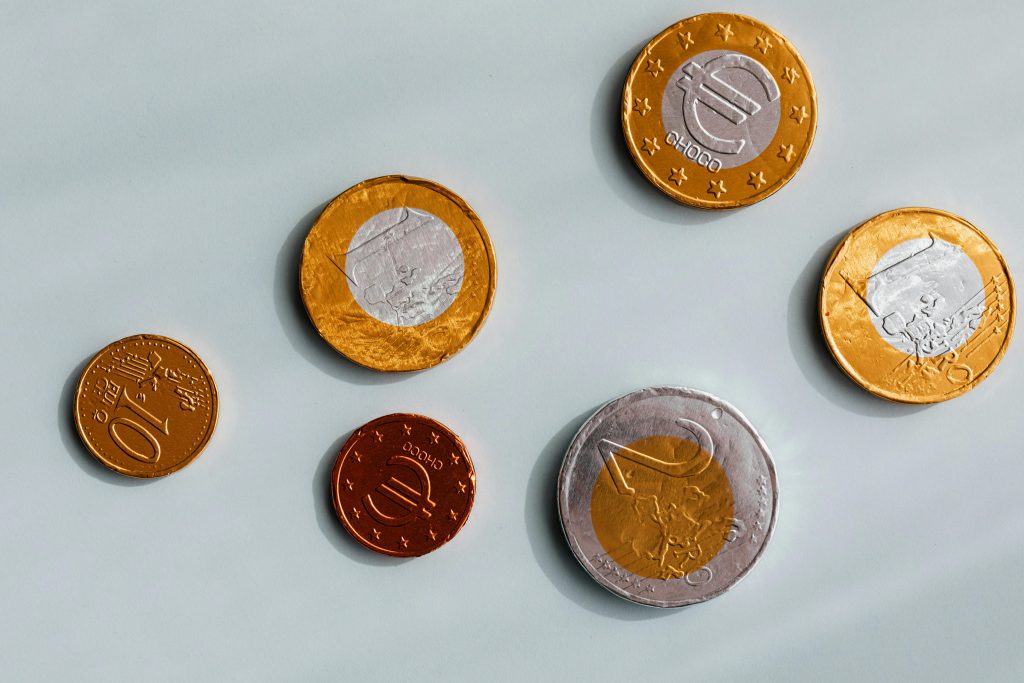Best Ways to Invest in Ireland: A Comprehensive Guide
Ireland, with its robust economy and favorable business environment, offers a myriad of investment opportunities. Whether you are a local or an international investor, understanding the best ways to invest in Ireland can help you make informed decisions that yield substantial returns. This comprehensive guide explores various investment options in Ireland, including real estate, the stock market, pension funds, and more.
Table of Contents

Real Estate Investment
Residential Property
Investing in residential property is one of the most popular ways to invest in Ireland. The demand for housing, especially in urban areas like Dublin, Cork, and Galway, has been consistently high. Here are some key points to consider:
- Market Trends: The Irish housing market has seen significant growth, driven by factors such as population increase, economic growth, and urbanization. It’s important to stay updated with market reports and trends to make informed decisions.
- Rental Yields: Buy-to-let properties offer attractive rental yields. Dublin, in particular, has a strong rental market due to the high demand from professionals and students. Areas around universities and business districts are particularly lucrative.
- Government Incentives: The Help to Buy scheme and other government incentives can benefit first-time buyers and investors. Additionally, tax relief on mortgage interest can enhance the overall returns on investment properties.
Commercial Property
Commercial real estate is another lucrative investment avenue. This includes office spaces, retail properties, and industrial units. Key factors to consider include:
- Location: Prime locations in Dublin and other major cities attract high rental income. Areas undergoing urban redevelopment also present unique opportunities for value appreciation.
- Tenant Quality: Securing reputable tenants ensures steady rental income and reduces the risk of vacancies. Long-term leases with established companies are particularly beneficial.
- Market Segments: The tech sector, hospitality, and logistics are booming, offering excellent opportunities in these segments. Co-working spaces and mixed-use developments are also gaining traction.
Real Estate Investment Trusts (REITs)
For those who prefer a more hands-off approach, investing in REITs can be a great option. REITs are companies that own and manage a portfolio of real estate properties. Benefits include:
- Diversification: Investing in a REIT allows you to diversify your portfolio without the hassle of managing properties directly. REITs often hold a variety of property types, spreading risk across different market segments.
- Liquidity: REITs are traded on the stock exchange, providing liquidity similar to stocks. This makes it easier to buy and sell shares compared to direct real estate investments.
- Dividends: REITs typically pay regular dividends, making them an attractive income-generating investment. Look for REITs with a strong track record of dividend payments.

Irish Stock Exchange (Euronext Dublin)
Investing in stocks listed on Euronext Dublin can yield substantial returns. Key points to consider include:
- Top Performing Stocks: Companies like Ryanair, CRH, and Bank of Ireland have shown strong performance and growth potential. Research these companies’ financial health, management, and market position.
- Market Sectors: Sectors such as technology, pharmaceuticals, and financial services are particularly robust in Ireland. Diversifying across these sectors can help mitigate risks.
- Dividend Stocks: Investing in dividend-paying stocks can provide regular income in addition to capital appreciation. Consider companies with a history of stable or growing dividends.
International Stocks
Irish investors can also diversify their portfolios by investing in international stocks. Benefits include:
- Global Exposure: Access to companies and markets outside of Ireland can mitigate local economic risks. Investing in global giants provides exposure to different economies and industries.
- Growth Opportunities: Investing in high-growth markets and industries can enhance returns. Emerging markets and tech innovations often offer higher growth potential.
- Currency Diversification: Holding assets in different currencies can provide a hedge against exchange rate fluctuations. This can be particularly useful if the Euro weakens relative to other currencies.

Pension Funds
Personal Retirement Savings Account (PRSA)
PRSAs are flexible, tax-efficient retirement savings plans. Key benefits include:
- Tax Relief: Contributions to PRSAs qualify for tax relief, reducing your taxable income. The tax savings can significantly boost your retirement fund over time.
- Investment Choice: PRSAs offer a range of investment options, including funds with varying risk levels. Tailor your investment strategy to your risk tolerance and retirement timeline.
- Portability: PRSAs are portable, meaning they can be transferred between employers without losing benefits. This flexibility is particularly beneficial for individuals who change jobs frequently.
Occupational Pension Schemes
These are employer-sponsored pension plans. Benefits include:
- Employer Contributions: Many employers contribute to occupational pension schemes, boosting your retirement savings. Some companies offer matching contributions, effectively doubling your savings.
- Investment Options: Similar to PRSAs, occupational schemes offer various investment choices. Diversifying your investments within the scheme can enhance growth potential and reduce risk.
- Tax Advantages: Contributions are tax-deductible, and investment growth is tax-deferred. This allows your retirement savings to grow faster than they would in a taxable account.

Mutual Funds and ETFs
Mutual Funds
Mutual funds pool money from multiple investors to invest in a diversified portfolio of stocks, bonds, or other securities. Key benefits include:
- Professional Management: Funds are managed by professional fund managers, providing expertise and research capabilities. This can be especially beneficial for novice investors.
- Diversification: Mutual funds offer instant diversification, reducing investment risk. They invest in a broad range of securities, which spreads risk across various assets.
- Accessibility: They are suitable for investors with varying levels of experience and investment amounts. There are funds available for different risk appetites and investment goals.
Exchange-Traded Funds (ETFs)
ETFs are similar to mutual funds but trade on stock exchanges like individual stocks. Advantages include:
- Flexibility: ETFs can be bought and sold throughout the trading day, offering greater flexibility than mutual funds. This allows investors to react quickly to market changes.
- Low Costs: ETFs typically have lower expense ratios compared to mutual funds. Lower costs mean more of your investment returns are retained.
- Wide Range: Investors can choose from a wide range of ETFs, including those focused on specific sectors, regions, or investment strategies. This allows for precise investment targeting.

Cryptocurrency
Bitcoin and Altcoins
Cryptocurrency has gained significant popularity as an investment asset. Key considerations include:
- High Returns: Cryptocurrencies like Bitcoin and Ethereum have shown the potential for high returns. Early adopters of major cryptocurrencies have seen significant appreciation.
- Volatility: The market is highly volatile, which can result in significant gains or losses. Be prepared for large price swings and consider only investing money you can afford to lose.
- Regulation: Understanding the regulatory landscape in Ireland is crucial, as it impacts the legality and taxation of cryptocurrency investments. Stay informed about regulatory changes that could affect your holdings.
Crypto Exchanges
Investing through reputable crypto exchanges is essential. Factors to consider include:
- Security: Choose exchanges with strong security measures to protect your investments. Look for features like two-factor authentication and cold storage.
- Fees: Compare transaction fees across different platforms to minimize costs. Some exchanges offer lower fees for higher volume trades.
- Liquidity: High liquidity ensures that you can easily buy and sell cryptocurrencies. Larger exchanges typically offer better liquidity.

Green and Sustainable Investing
ESG (Environmental, Social, Governance) Investing
ESG investing focuses on companies that meet high environmental, social, and governance standards. Benefits include:
- Ethical Investing: Align your investments with your values and support sustainable practices. ESG investing allows you to make a positive impact while potentially earning competitive returns.
- Performance: ESG funds have been shown to perform competitively with traditional funds. Companies with strong ESG practices often exhibit lower risk and better long-term performance.
- Risk Management: Companies with strong ESG practices tend to have better risk management and long-term sustainability. They are more likely to avoid scandals and regulatory penalties.
Renewable Energy Projects
Ireland has a strong focus on renewable energy, particularly wind and solar power. Investment opportunities include:
- Green Bonds: Invest in bonds issued to fund renewable energy projects. These bonds often come with attractive interest rates and contribute to environmental sustainability.
- Equity Investments: Invest in companies developing or operating renewable energy projects. As the world shifts towards cleaner energy, these companies are poised for growth.
- Government Initiatives: Take advantage of government incentives and support for green energy investments. Grants, tax breaks, and subsidies can enhance returns and reduce initial investment costs.

Government Bonds
Irish Government Bonds
Investing in Irish government bonds can provide a stable and secure income. Key points include:
- Low Risk: Government bonds are considered low-risk investments compared to stocks or real estate. They are backed by the government, which reduces default risk.
- Fixed Returns: Bonds pay regular interest, providing predictable income. This makes them suitable for conservative investors seeking steady returns.
- Diversification: Adding bonds to your portfolio can diversify and balance risk. They typically perform differently than stocks, providing stability during market downturns.
Eurozone Bonds
Irish investors can also consider bonds issued by other Eurozone countries. Benefits include:
- Diversification: Spreading investments across different countries reduces risk. It provides exposure to various economic conditions and policies.
- Variety: Access to bonds with different yields and maturities to suit your investment strategy. This allows for tailored investment approaches based on income needs and risk tolerance.
Venture Capital and Private Equity
Startup Investment
Investing in startups can be highly rewarding, though it comes with significant risk. Key considerations include:
- High Growth Potential: Startups, especially in the tech sector, can offer substantial returns if successful.
- Support Ecosystem: Ireland has a strong startup ecosystem with incubators, accelerators, and government support.
- Diversification: Investing in a portfolio of startups can mitigate individual company risk.
Private Equity Funds
Private equity involves investing in private companies or buyouts. Benefits include:
- Professional Management: Private equity funds are managed by experienced professionals.
- High Returns: Potential for high returns, particularly from successful buyouts or company growth.
- Long-Term Investment: Typically involves a longer investment horizon, aligning with strategic growth plans.
Best Ways to Invest in Ireland in a nutshell
| Investment Option | Key Points |
|---|---|
| Residential Property | – High demand in urban areas (Dublin, Cork, Galway) – Attractive rental yields, especially in Dublin – Government incentives like Help to Buy scheme and tax relief on mortgage interest |
| Commercial Property | – Prime locations attract high rental income – Securing reputable tenants ensures steady income – Opportunities in tech, hospitality, logistics, and mixed-use developments |
| Real Estate Investment Trusts (REITs) | – Provides diversification without managing properties directly – Traded on stock exchange, offering liquidity – Typically pay regular dividends |
| Irish Stock Exchange (Euronext Dublin) | – Top performing companies: Ryanair, CRH, Bank of Ireland – Robust sectors: technology, pharmaceuticals, financial services – Dividend-paying stocks for regular income |
| International Stocks | – Access to global companies and markets – Enhances growth opportunities and mitigates local risks – Provides currency diversification |
| Personal Retirement Savings Account (PRSA) | – Tax relief on contributions – Flexible investment options – Portable between employers |
| Occupational Pension Schemes | – Employer contributions boost savings – Variety of investment options – Tax-deductible contributions and tax-deferred growth |
| Mutual Funds | – Professionally managed with research capabilities – Offers diversification, reducing risk – Suitable for various investment amounts and experience levels |
| Exchange-Traded Funds (ETFs) | – Traded like stocks with flexibility – Typically lower expense ratios than mutual funds – Wide range of options, including sector-specific and strategy-focused ETFs |
| Cryptocurrency | – Potential for high returns, especially with Bitcoin and Ethereum – Highly volatile market – Regulatory landscape in Ireland affects legality and taxation |
| Crypto Exchanges | – Choose exchanges with strong security measures – Compare transaction fees to minimize costs – High liquidity ensures easy buying and selling |
| ESG (Environmental, Social, Governance) Investing | – Align investments with ethical values – Competitive performance with traditional funds – Better risk management and long-term sustainability |
| Renewable Energy Projects | – Invest in green bonds and companies in wind and solar power – Attractive interest rates and government incentives – Significant growth potential in the green energy sector |
| Irish Government Bonds | – Considered low-risk investments – Provide fixed returns and predictable income – Adding bonds diversifies and balances portfolio risk |
| Eurozone Bonds | – Diversifies investments across Eurozone countries – Access to various yields and maturities – Spreads risk across different economic conditions |
| Startup Investment | – High growth potential, especially in tech startups Ireland has a strong startup ecosystem – Investing in a portfolio of startups mitigates individual company risk |
| Private Equity Funds | – Managed by experienced professionals – Potential for high returns from successful buyouts or company growth – Typically a long-term investment aligning with strategic growth plans |
Conclusion
Investing in Ireland offers a wealth of opportunities across various asset classes. Whether you are interested in real estate, the stock market, pension funds, or alternative investments like cryptocurrency and venture capital, Ireland’s dynamic economy and favorable business environment provide a solid foundation for growth. By understanding the different investment options and staying informed about market trends, you can make strategic decisions that align with your financial goals and risk tolerance.






Thank you for your sharing. I am worried that I lack creative ideas. It is your article that makes me full of hope. Thank you. But, I have a question, can you help me?